Muslim Women in Tech: Faten Hijazi at Google
Lifestyle
|
Apr 11, 2017
|
8 MIN READ

Muslim Women in Tech is a series of interviews that highlights inspiring powerhouses who are making their mark in the tech industry, detailing the highs and lows from their career journeys. They offer insight on the day-to-day demands of this burgeoning and lucrative industry and what it's like to be a Muslim woman in Technology. Our fifth installment features Faten Hijazi, a 37-year-old Computer Engineer grad with an MBA in Leadership who is a Program Manager at Google.
Disclaimer: Faten is speaking in a personal capacity and not as a spokesperson for Google.
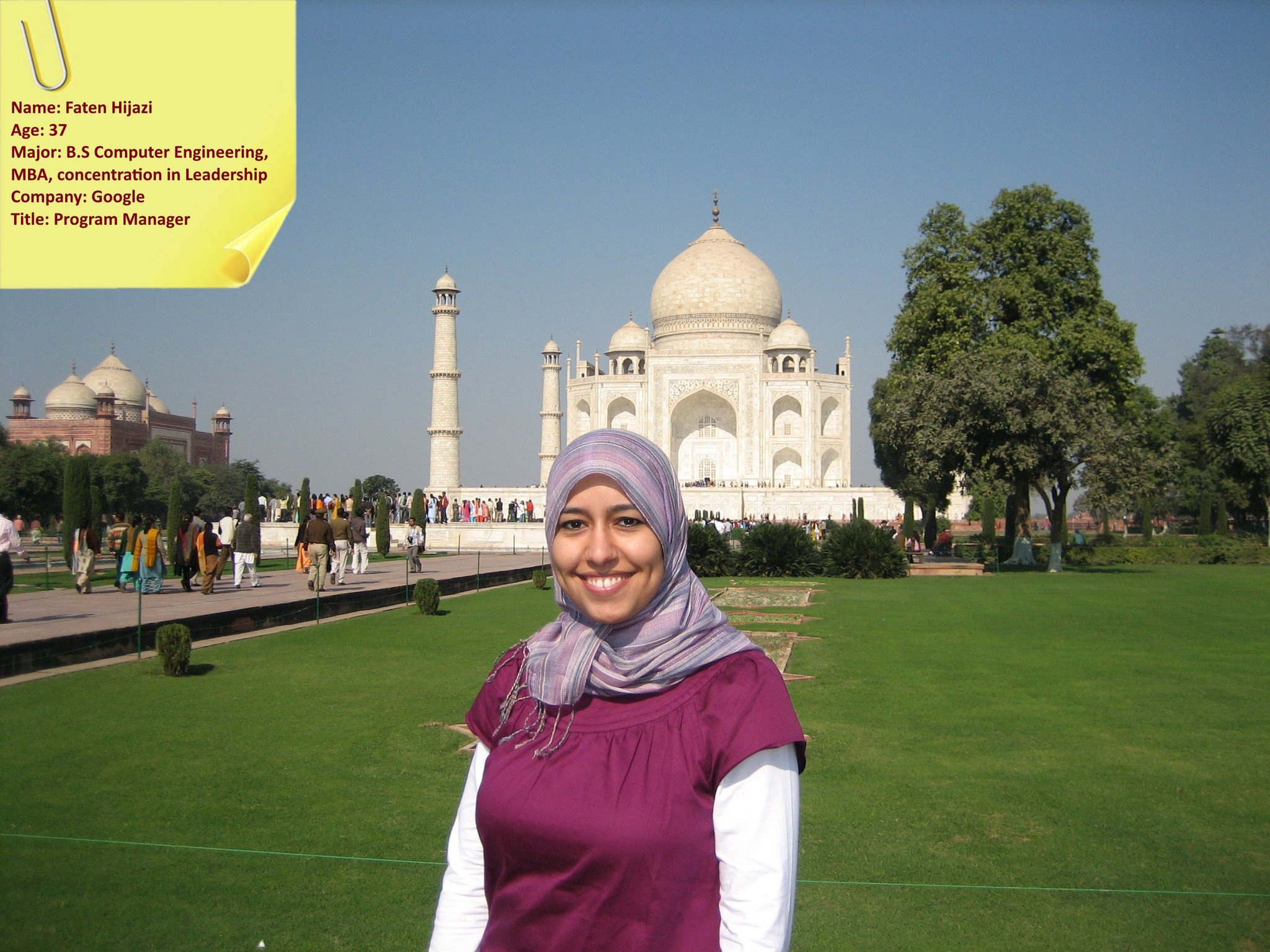
What inspired you to go into STEM? Is this something you always wanted to do?
I always loved math and science. I was inspired by the verses in the Quran that encourage men and women to reflect upon nature and the universe. To me, that was a call to study science as a means to get closer to God. It was also a field where if I worked hard enough, I could find an answer. If I worked even harder, I could find different ways to get to the same answer. When I was in high school, I often found myself trying to solve the same math question in different ways. I'm not sure why it fascinated me, but knowing that different paths could lead to same destination was a real source of excitement!
How did you become an engineer?
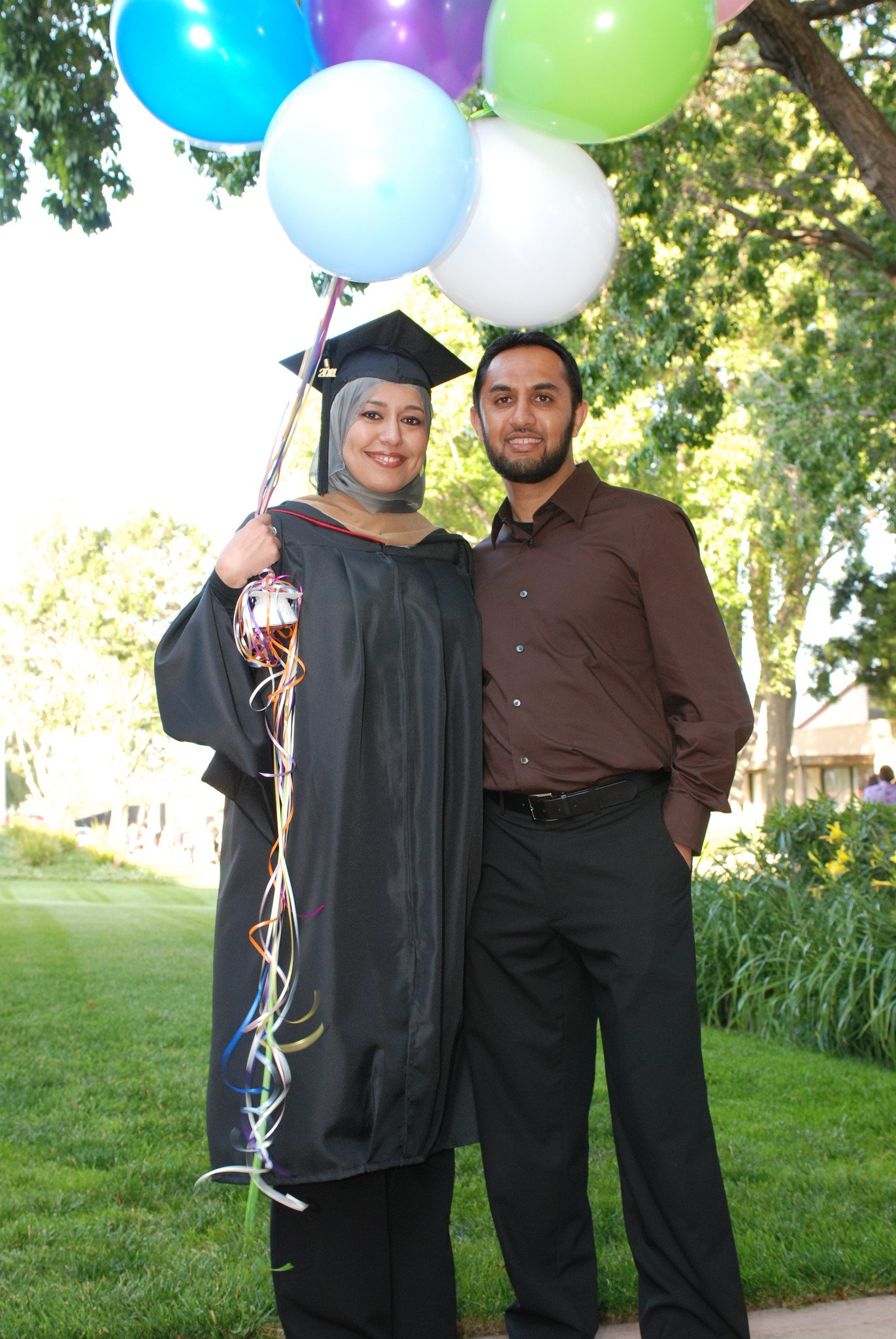
How did you act on suddenly seeing yourself differently?
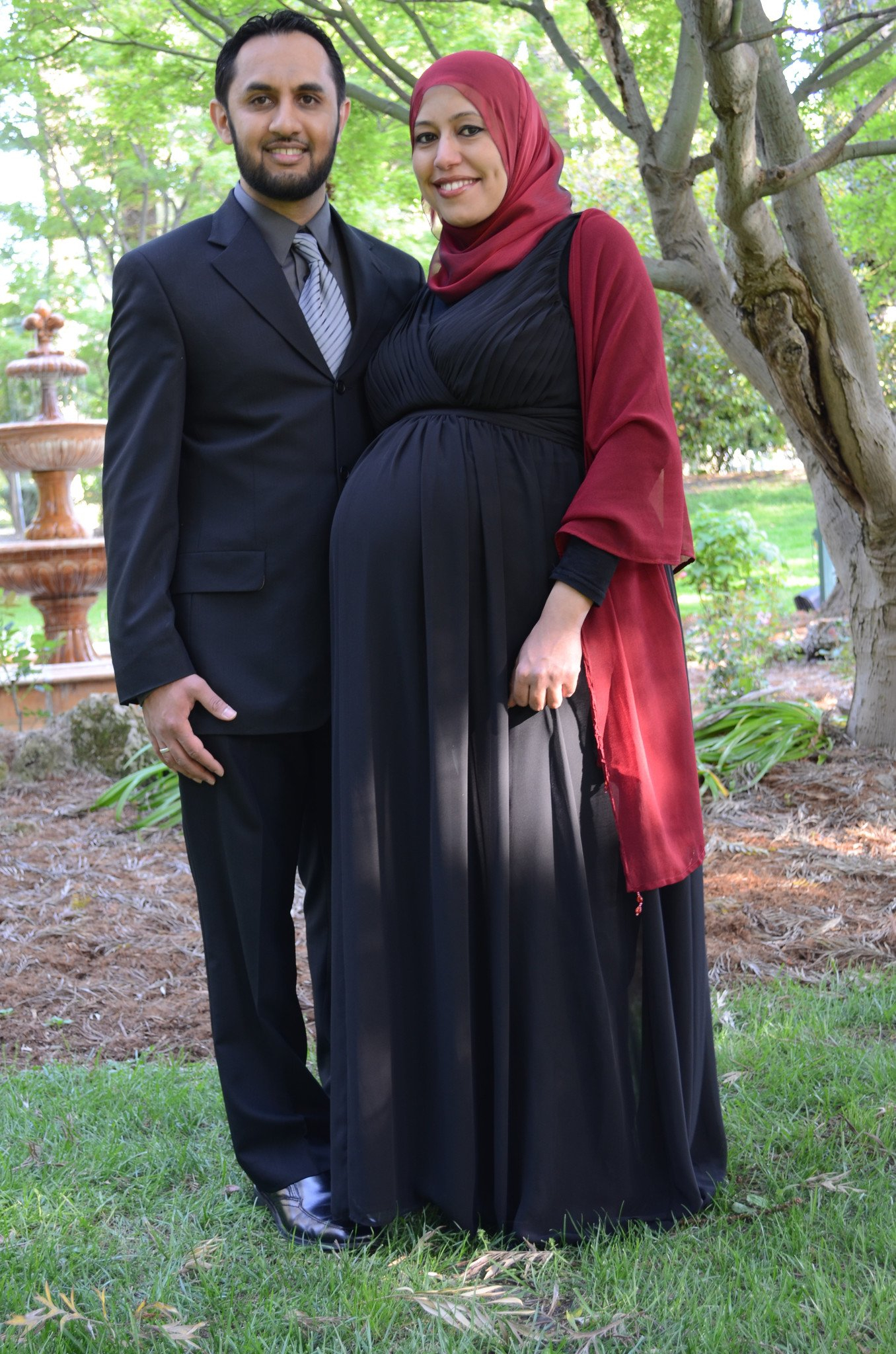
Can you expand on some of the difficulties you faced working in a new role?
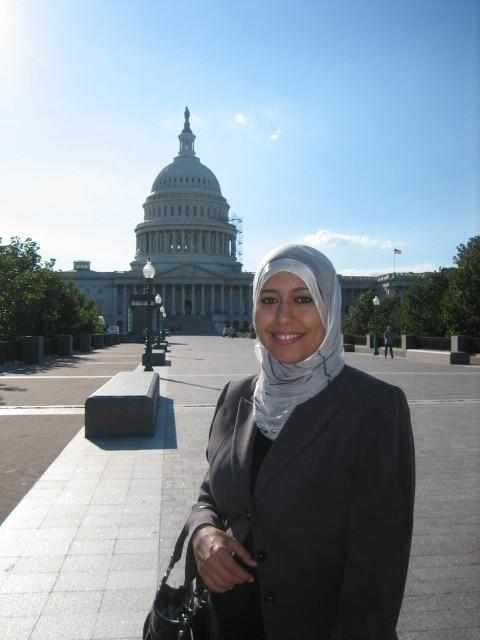
What prompted your transition to Google?
I was loving my job but hating the baggage that was mounting with it. Google pinged me on LinkedIn for a very different type of job, one I did not initially consider to be on my career trajectory. I liked being in a business role, and this was on the operations side of Google’s technical infrastructure. I went to the interview with skepticism and came out in love with the people, culture and workplace environment. The people I interviewed with were  awesome and focused on making an impact. I had just gotten another promotion and felt deeply conflicted about what I wanted. I could continue in the semiconductor industry and eventually move up in scope and responsibility or I could start fresh in a new industry with a company that actively tries to be more inclusive in its products and its workforce. I chose to start fresh.
awesome and focused on making an impact. I had just gotten another promotion and felt deeply conflicted about what I wanted. I could continue in the semiconductor industry and eventually move up in scope and responsibility or I could start fresh in a new industry with a company that actively tries to be more inclusive in its products and its workforce. I chose to start fresh.

What’s been your experience as a Muslim woman at work?
It’s a double whammy being female and Muslim. When I was in engineering, people assumed I was not as technical as my male colleagues because men made up the majority and that was the stereotype. Ironically, when I moved to business people assumed I was more technical because my skin tone was brown. When people discovered I was a strong technical contributor, I felt idolized. Women often fall into very narrowly defined categories. Either you’re “wow! So amazing!” and you’ve blown everyone away or you’re just sliding by because you’re not viewed as strong. Men typically have a wider range of acceptable behavior. Women are much more susceptible of falling off the edge in either direction.
From a Muslim perspective, the most common experience is that people assumed I didn’t work or I didn’t speak English well. Several times people assumed that I was married to an employee at work (such as an Arab or Muslim man). This implies I don’t fit the “profile” of a business professional. Often, my religion or ethnicity would “invite” very awkward and inappropriate conversations, such as colleagues joking about terrorism with me. One time, a colleague decided to randomly tell me what he thinks about suicide bombers. He knew I was Palestinian and I’m pretty sure he was trying to make a statement. It was wholly inappropriate. Over time, I’ve learned to navigate around these instances and use them as teaching opportunities to educate people around me.
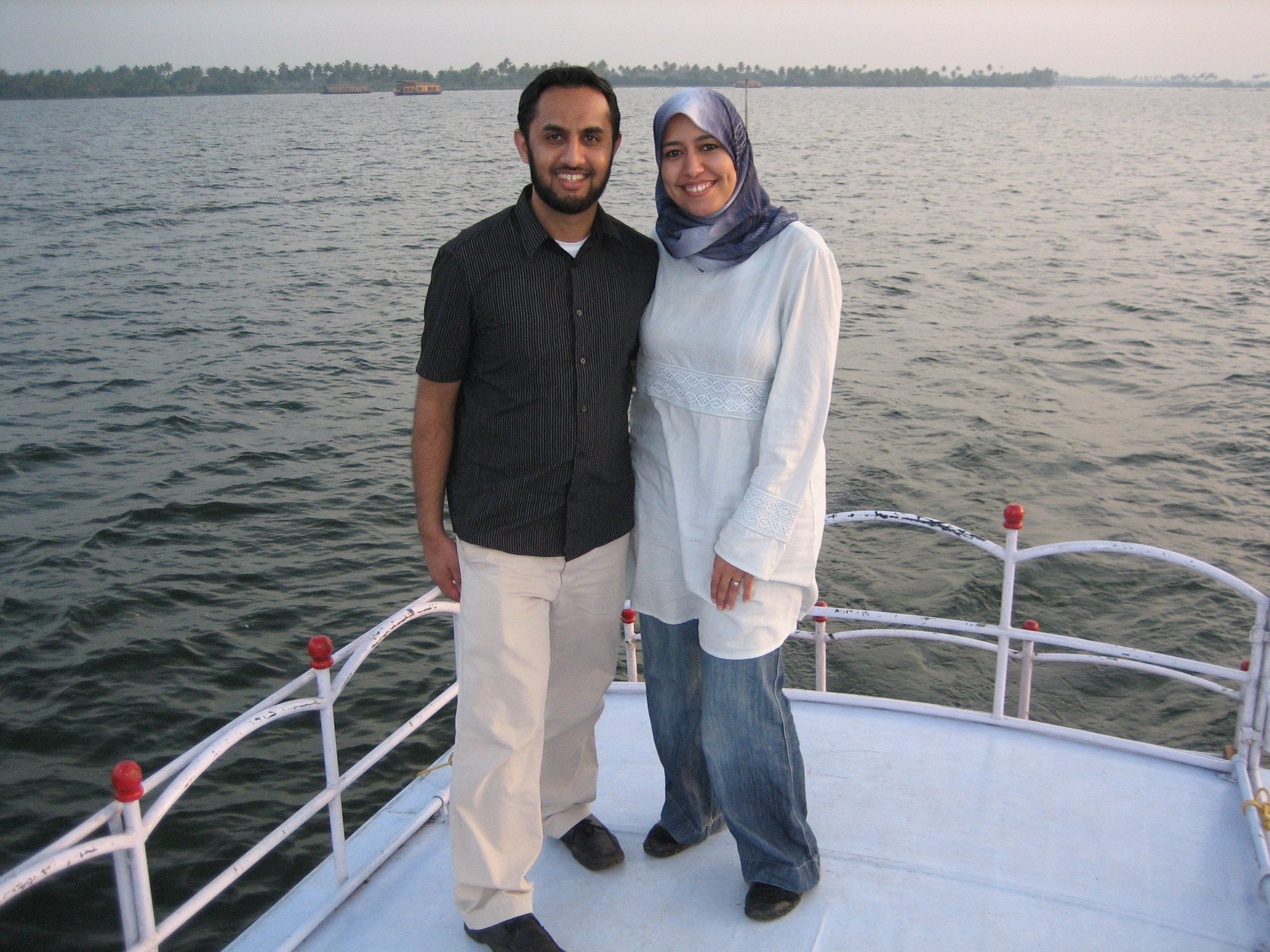
How do you draw the line between teaching opportunities and inappropriate treatment?
I’d say be aware of gender, race and religion, but don’t assume that every bad experience happens because of it. You can fall into the trap of self-loathing, self-pity and victimization. Going back to our faith, Muslims have the concept of “ihsan”, or “excellence”; whatever you do, you should do it well. Your point of comparison should be to your own capacity, and not other people’s accomplishments. Ihsan turns your attention towards the work at hand, and helps untie the shackles of bigotry. If you can do a better job than your coworker can, you need to do a better job. Period. But don’t kill yourself over it. Set boundaries and limits, and seek the recognition you deserve. But don’t regret having to work hard or do a better job. While it may not feel fair that you have to work harder than a person with more privilege (because it isn’t fair), use it as a growth opportunity and reflect on your own set of privileges. As a community, we must work together to dismantle bigotry, racism, sexism, and all forms of systemic bias and discrimination.
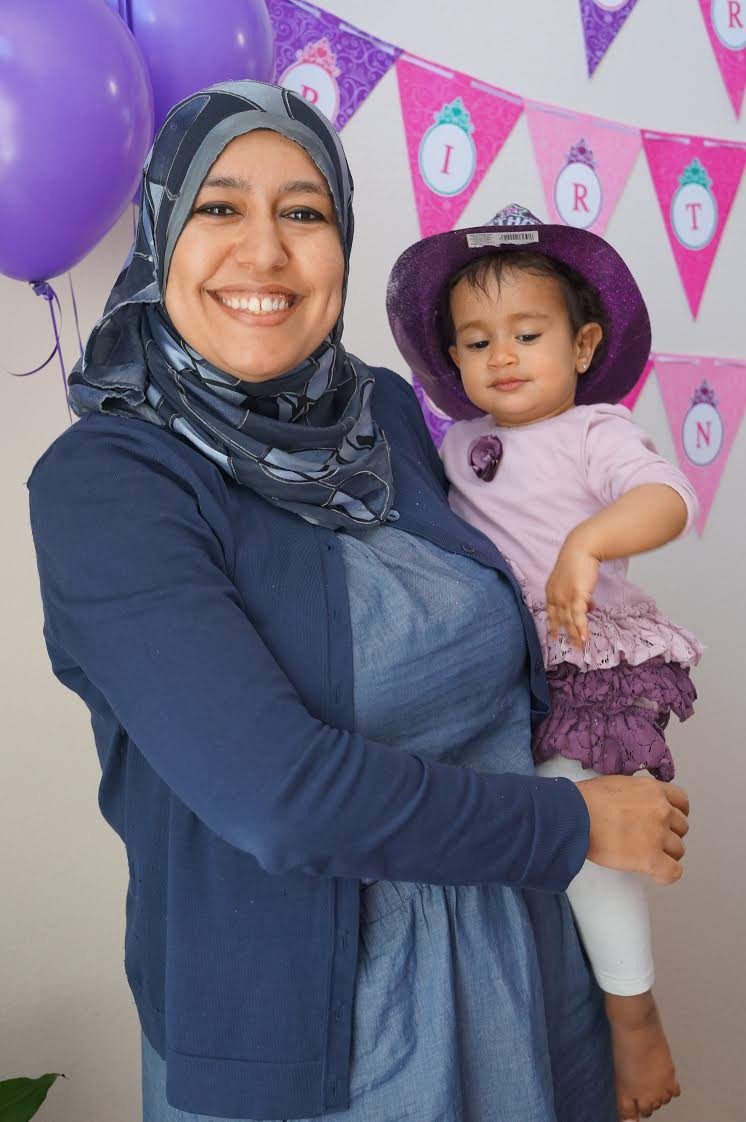
It is important to have management alignment, which means that you align yourself with your management’s strategy and goals. I am a more valuable employee when I can solve my manger’s problems, and when I can better understand the big picture. I take the time to understand the culture and big picture rather than jump in headfirst and create output for the sake of creating output. I'm focused on creating value. At the end of the day, people recognize value. This is really important. Make sure your work is valuable to those around you. Whether you’re helping a teammate test his or her code, or another team member hit his/her sales target, people around you will recognize your value. The tricky part is making sure your manager recognizes your value – and that may take some time and communication. We should take this same concept of “creating value” to our community and neighborhood. We should share a meal and offer a lending hand to our neighbors. This is important to do particularly with the backlash the Muslim community is facing today. We cannot live in isolation and assume our neighbors know who we are and what we care about. Is it unfair to have to “prove” goodness? Absolutely. But that is not what I am suggesting. I propose we create more value in our communities. And if we are creating value that isn’t recognized, we may have to build more bridges, communicate, and help people connect the dots.
What were some of your favorite insights from Faten? Share them in the comments below and check back next week for Part VI of the Muslim Women in Tech Series by Alina Din!
Subscribe to be the first to know about new product releases, styling ideas and more.
What products are you interested in?

